Filmmakers
2022 DJP Fellows
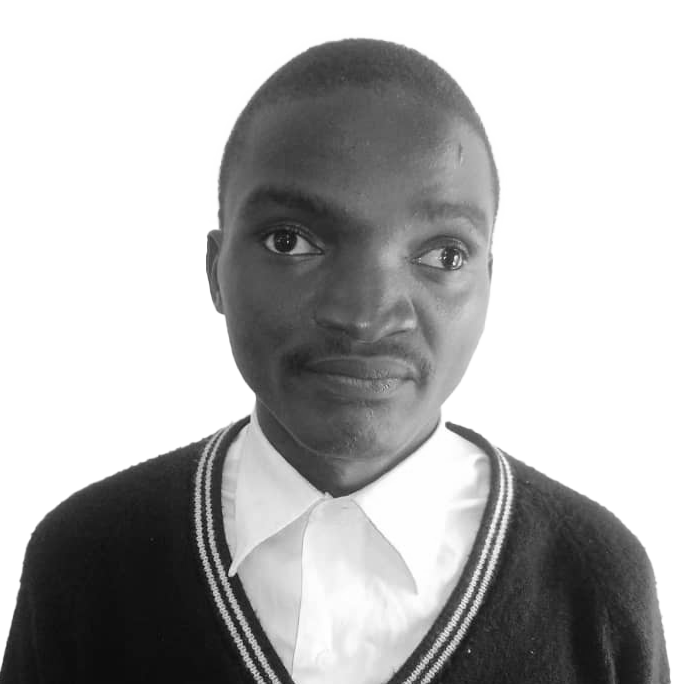
Duster Lucius
Duster Lucius is a 19-year-old disability youth activist who is DeafBlind (partial hearing, completely blind). Malawian by nationality and Yao by tribe, he is a national youth coordinator at the Visual Hearing Impairment Membership Association (VIHEMA), an organization advocating for the rights and needs of persons who are DeafBlind in Malawi. At VIHEMA, Lucius advocates for the inclusion of youth who are DeafBlind in all the Malawian government’s strategic development activities. Aside from his advocacy work, he currently studies at St. Patrick’s National Secondary School in Mzedi.
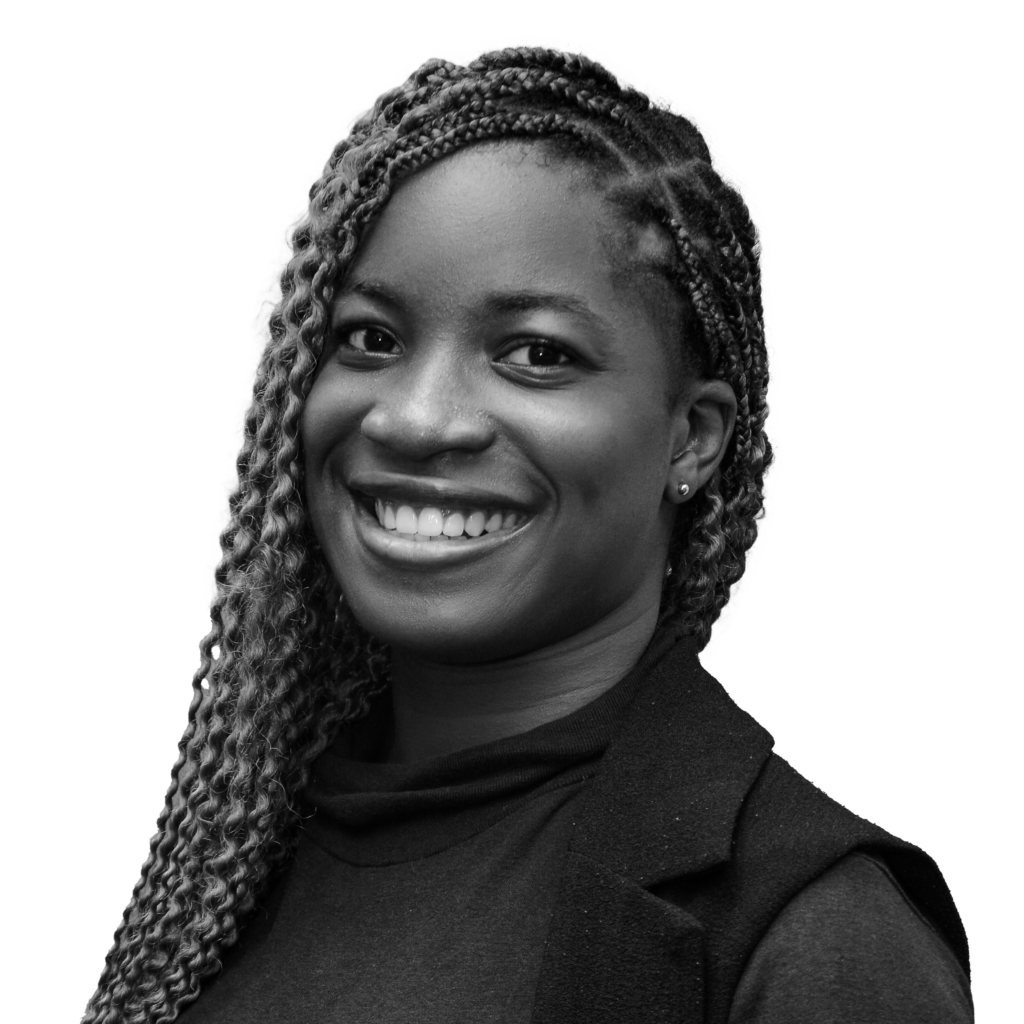
Benedicta Oyedayo Oyewole
Benedicta Oyedayo Oyewole is an intersectional feminist passionate about disability and women’s rights. Working and living at the nexus of multiple identities, she is interested in the interconnectedness of sexuality, disability, climate, and gender justice. She currently works as a program officer of diversity and inclusion at the Women’s Health and Equal Rights (WHER) Initiative, a nonprofit focused on promoting the rights and well-being of lesbian, bisexual, and queer (LBQ) women in Nigeria. Her dream is to travel the world, document, and explore how the multiplicities of our identities – sexuality, gender, ability, presentation, and upbringing – shape how we engage with and think about ‘desire.’
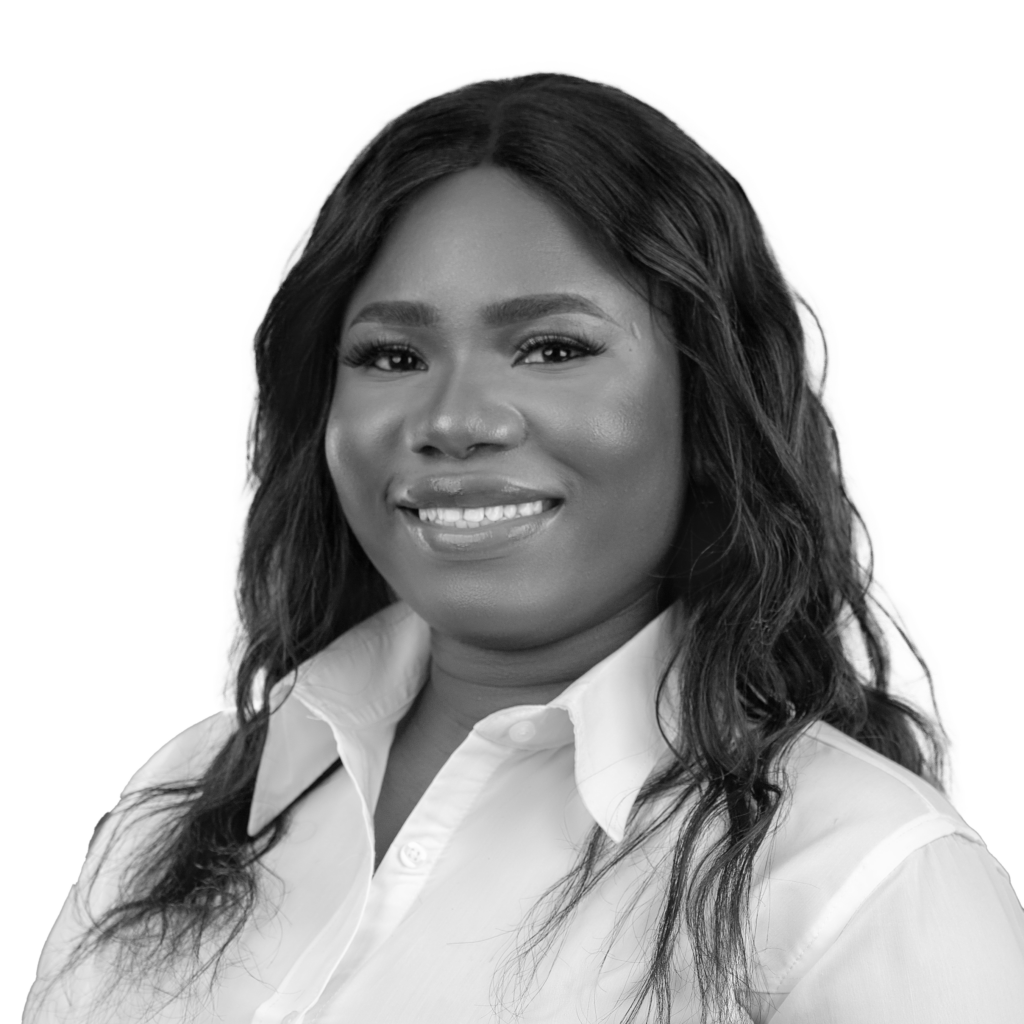
Oluwaseun Ayodeji
Oluwaseun Ayodeji inspires action for child amputees and young persons with disabilities through her role as the Team Lead, Human Resources and Operations at the IREDE Foundation in Nigeria. She is a dynamic, resourceful, and innovative professional with over five years of progressive management experience in the development and aviation industries. With experience in the development space, Oluwaseun, a person with a physical disability (amputee) herself, has contributed to and delivered impact by advocating with and for children with disabilities, vulnerable children, and victims of sexual and gender-based violence. She enjoys arts in their diverse expressions and is quite keen on issues touching gender equality, human rights, and environmental awareness. She holds a bachelor’s degree in international relations and certifications in human resource fundamentals and people management from the Chartered Institute of Personnel and Development (CIPD), among other certifications.
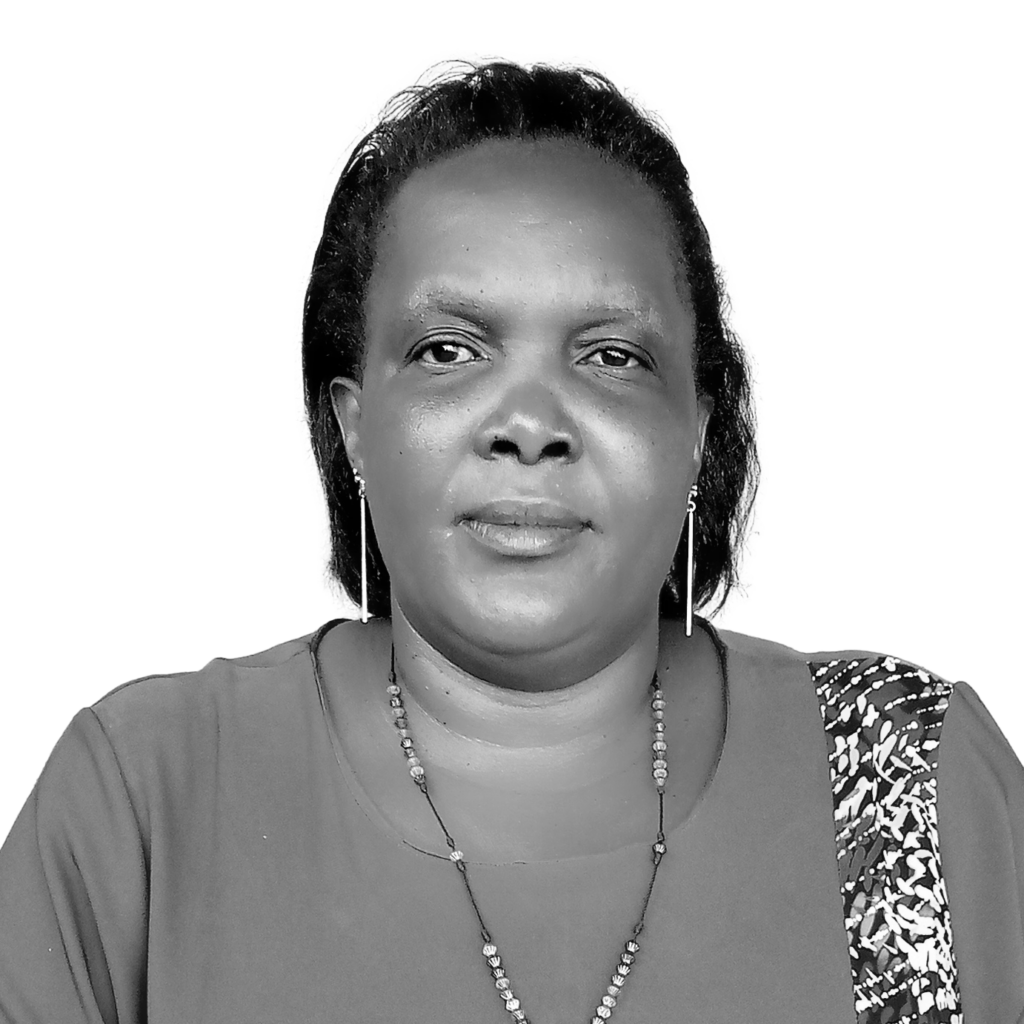
Christine Oliver Dhikusooka
Christine Oliver Dhikusooka is a 48-year-old Catholic Ugandan, married with four children. She is a woman with a physical disability resulting from polio at age four. She holds an accounting diploma from Makerere Perfect Accountancy Centre in Kampala. Dhikusooka is the executive director of One Voice Heard 4 Disability Uganda (OVH4DU), a disability rights activist for women with disabilities in Uganda, and a policymaker in local government, representing women with disabilities. She serves as treasurer of the Council for Persons with Disabilities in the Roman Catholic Diocese of Jinja.
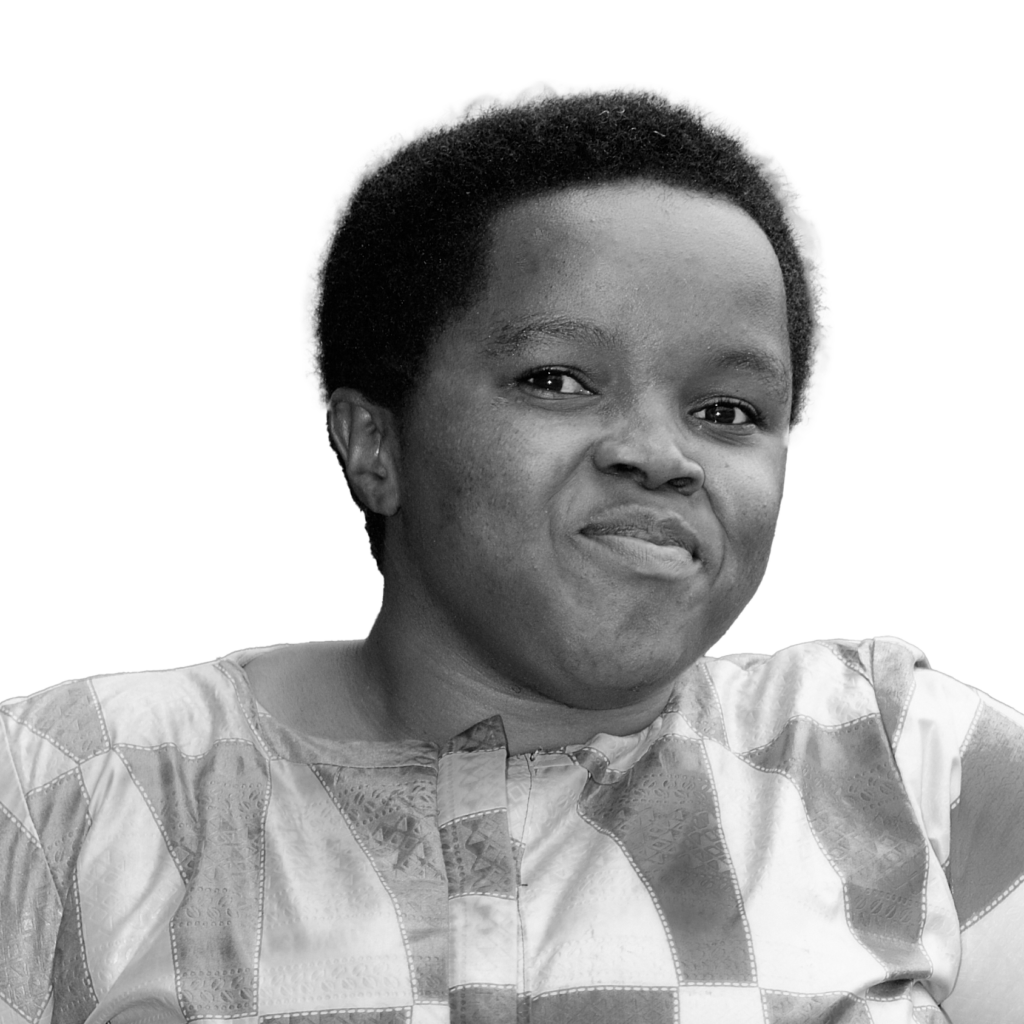
Esther Mukampogazi
Esther Mukampogazi, a woman with dwarfism, is a project manager and advocacy coordinator at the Organization of Women with Disabilities for Health Promotion and Development in Rwanda (OWDHD). She holds a bachelor’s degree in communication and journalism from the University of Rwanda. Mukampogazi has been working in the disability community, participating in training, meetings, and events focused on social inclusion and making a more disability-friendly world. As a youth advocate, she has worked to make positive changes in government, schools, communities, and families. Her dream is to continue being a strong disability and gender activist.
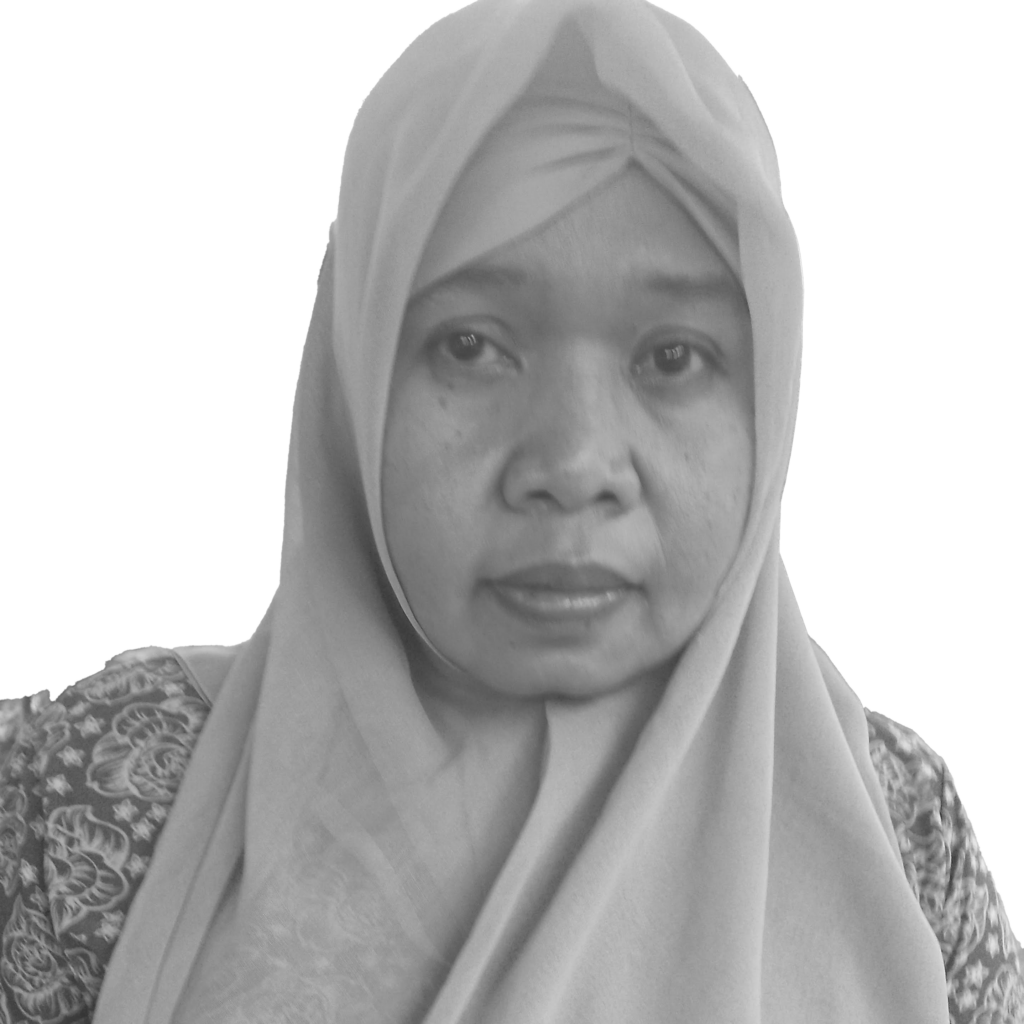
Sri Sukarni
Sri Sukarni is chairperson of the Association of Indonesian Women with Disabilities (HWDI)’s branch in the province of West Nusa Tenggara. She joined HWDI as a member in 2010 and has been involved ever since. HWDI’s mission includes advocating for the social development of women with disabilities and improving their quality of life. The organization champions equal opportunity and full participation for women with disabilities. As chairperson, Sukarni is responsible for the management and leadership of the organization’s programs. Additionally, she works with team members, board members, and external stakeholders to create and deliver organization reports.
Sukarni’s disability advocacy goes beyond HWDI. In 2015, she researched the oversight of government assistance programs for persons with significant disabilities with the Australia Indonesia Partnership for Justice (AIPJ) and the Universitas Gadjah Mada’s Anti-Corruption Study Center (PUKAT). In 2016, she was chair of the Wheelchair Basketball Program at the Bali Sports Foundation. Sukarni also presented on disability issues related to infrastructure at the International Conference on Disability & Diversity in Asia at Universitas Brawijaya in 2019.
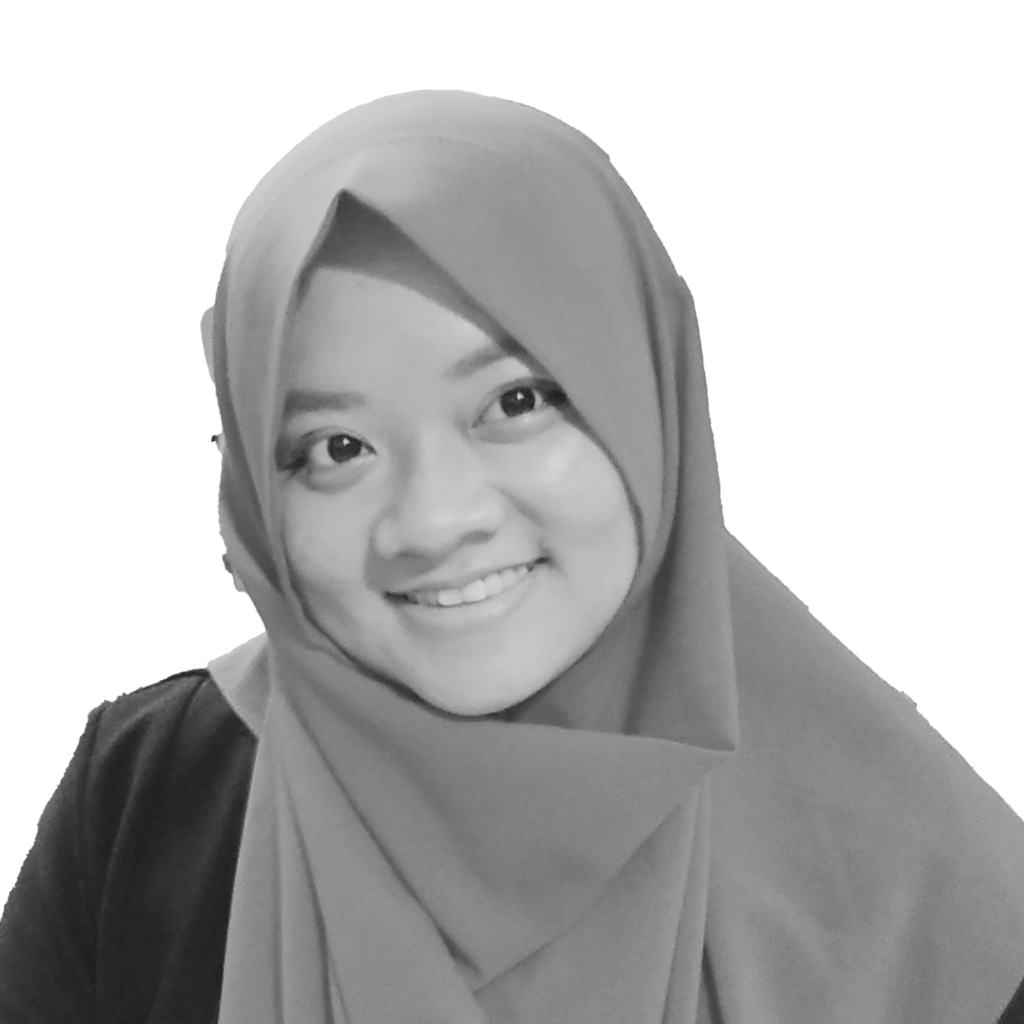
Kinanty Andini
Kinanty “Kinan” Andini is a freelance graphic design and digital artist and a psychosocial disability activist. She is affiliated with the Indonesian Mental Health Association (IMHA), also known as Perhimpunan Jiwa Sehat. She collaborated with other IMHA members to create a short film series, “AADM (What’s Wrong with Mental Disability)” about the underreported experiences of persons living with psychosocial disabilities. IMHA advocates for the rights of Indonesians with psychosocial disabilities based on the United Nations Convention on the Rights of Persons with Disabilities. IMHA’s activities include advocacy, campaigns, lobbying, legal efforts, media, public awareness, trainings, workshops, research, seminars, discussions, and more.
Andini is passionate about visual arts, particularly graphic design and digital art/illustration. In 2019, she produced banners and posters for a competition held by the Indonesian Ministry of Foreign Affairs. Last year, she worked as a video content creator intern at a company in Jakarta. She plans to channel her digital design and artistic skills into animation, digital comics, games, and advertising. Follow her on Instagram to check out her digital art.
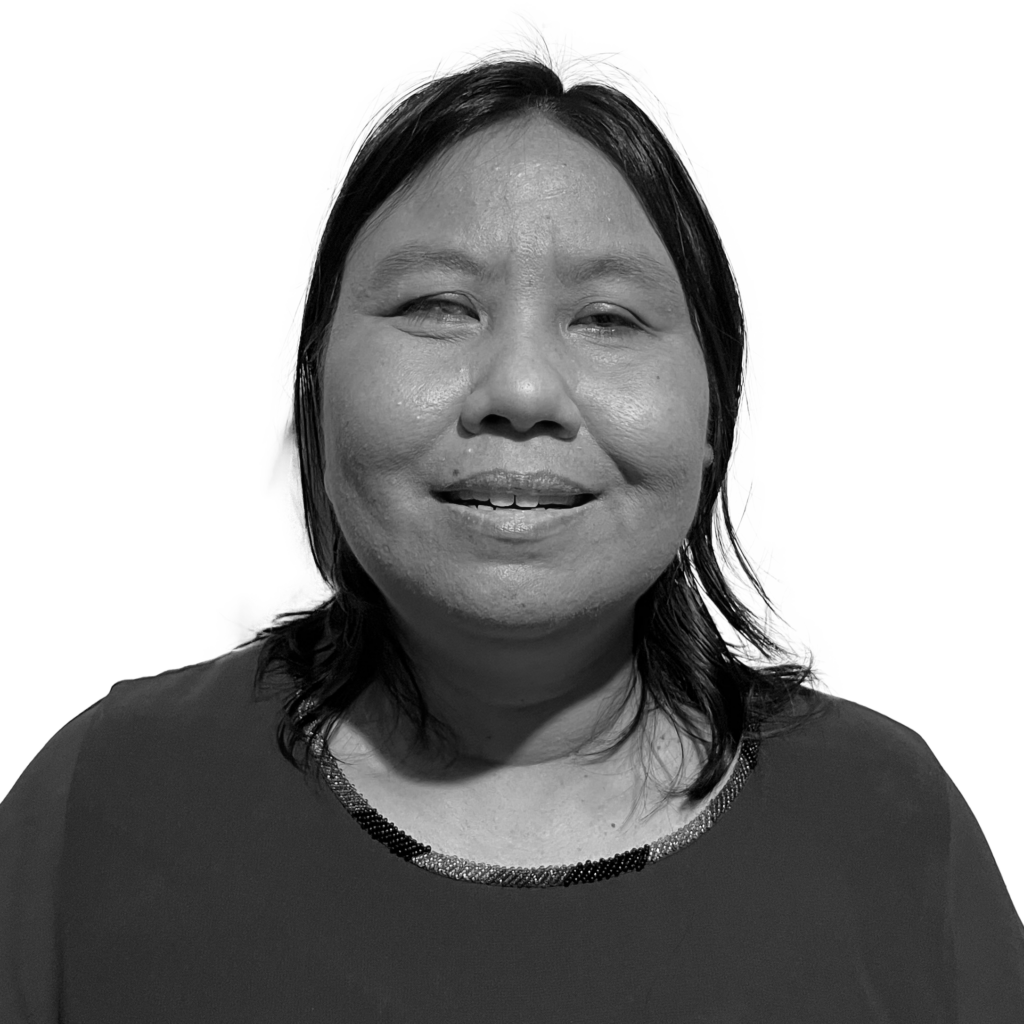
Mahretta Maha
Mahretta “Retta” Maha is a blind disability rights activist hailing from Jakarta, Indonesia. She is one of four children. Of all the children, Maha’s parents prioritized sending Retta to college and eventually law school. She earned a law degree from Atma Jaya Catholic University of Indonesia. In June 2020, Maha became a program officer at the Center for Election Access of Citizens with Disabilities (PPUA), which is part of the National Coalition of Organizations of Persons with Disabilities. PPUA works to ensure equal rights for persons with disabilities to vote, be elected, and organize elections.
As a program officer at PPUA, Maha coordinates with coalition leaders, writes letters to institutions and stakeholders, organizes webinars, and helps manage social media accounts. Overall, Maha finds purpose in serving others. Maha says, “Blindness is not a barrier for you to do some things but is a challenge for you to do many things.”
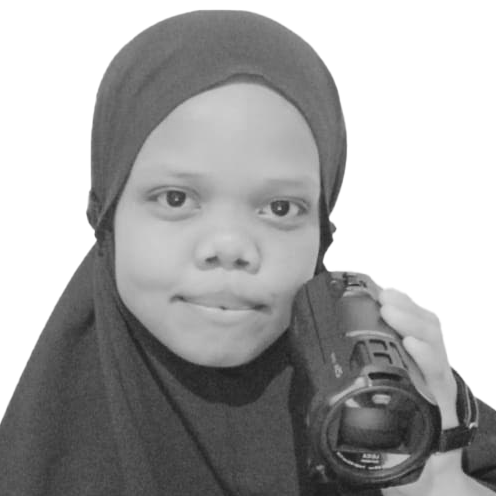
Dija
Dija, who has a single given name and no surname, is chairperson of the Association of Indonesian Women with Disabilities (HWDI)’s branch in Simbang in the Indonesian province of South Sulawesi. She is also a board member of the Section Indigenous Community, a sub-section of HWDI’s branch in South Sulawesi. Dija first became involved with HWDI over three years ago. Its mission includes advocating for the social development of women with disabilities and improving their quality of life. The organization champions equal opportunity and full participation for women with disabilities.
Dija also has been active in a participatory planning and budgeting system in Indonesia known as “Musrenbang.” During in-person and online forums, local governments engage citizens in discussions on community aspirations and priorities. Last year with HWDI South Sulawesi, Dija advocated for a Musrenbang focused on disability. She worked with two offshoot groups of HWDI to accomplish this – Self-Help Group Batubassi Pammase and Self-Help Group Panrita. Both groups work to support Indigenous persons with disabilities in their respective communities. As a result of their advocacy efforts, the local government integrated disability into a pre-existing “Thematic Musrenbang for Women and Children” to form the “Thematic Musrenbang for Women, Children, and Disability.” Dija is a member of the Simbang District delegation at another local “Musrenbang,” representing Indigenous women with disabilities.
At HWDI South Sulawesi, Dija also collects data on Indigenous persons with disabilities in Batubassi, a village in South Sulawesi, with Self-Help Group Batubassi Pammase. She assists with cases of sexual violence against women with disabilities in South Sulawesi’s Maros Regency with a Self-Help Group Batubassi Pammase companion. Dija is a children’s rights advocate, too. She joined a network of women’s and children’s organizations in the Stop Child Marriage Campaign Coalition in Maros Regency.
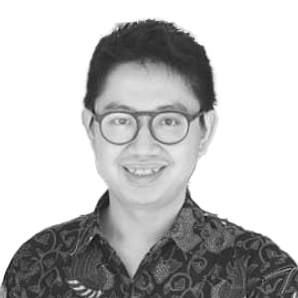
Naufal Asy-Syaddad
Naufal Asy-Syaddad is a disability rights activist with autism. After joining Yogasmara Foundation’s finance staff last year, Asy-Syaddad became chairperson of the foundation’s youth group. Yogasmara Foundation provides accommodation, accessibility, and advocacy services for Indonesians with autism and developmental disabilities to gain equality in fulfilling their rights as citizens. The foundation was started by his mother, disability rights activist Lani Setyadi. It is based in Semarang, the capital of Central Java.
In 2015, Asy-Syaddad was selected to be a “disability ambassador” representing Indonesia at a training in Thailand on the rights of persons with disabilities. Beyond his work with the Yogasmara Foundation, Asy-Syaddad is a talented mathematician, achieving top honors in national competitions and garnering local press attention. He recently earned a mathematics degree from Diponegoro University. With the Disability Justice Project, he hopes to share his experiences to end the stigma and discrimination against persons with autism.
2023 DJP Fellows - Nepal.
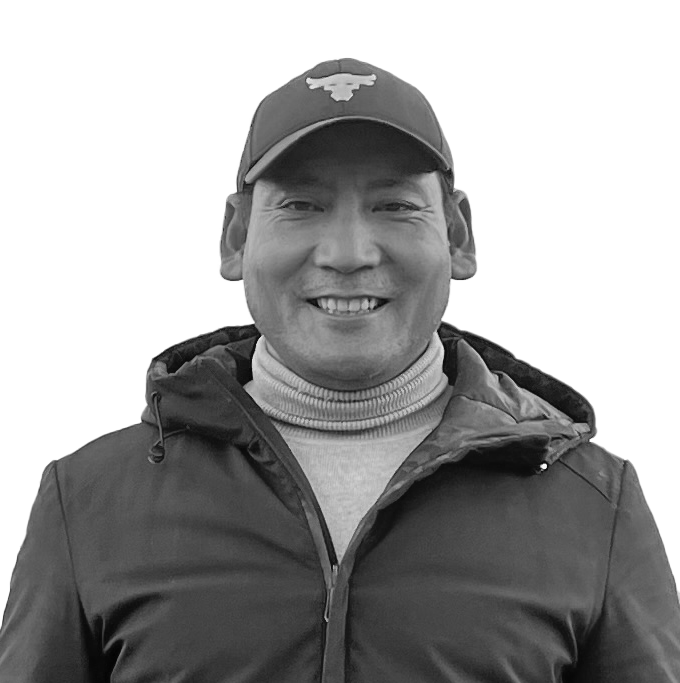
Chhitup Lama
Chhitup Lama is the founding executive director of Himalayan Education and Development (HEAD) Nepal, a non-profit organization working for disability inclusion in the remotest mountain region in the Humla district in Nepal. He spearheads overall management, institutional development, strategic direction and the vision and mission of the organization. Lama has experience in civil society organization capacity building, gender equity and social inclusion, and expertise in inclusive education. Additionally, as a Community Engagement Exchange (CEE) specialist and a civil society leader, he has contributed to support the CEE program of International Research & Exchanges Board (IREX) and the US State Department. In this role, he has mentored emerging youth leaders around the world with leadership capacity, grown networks, and developed a community engagement project while helping cultivate the next generation of talent in civil society. Lama is deeply interested in accessible tourism, inclusive filmmaking, horseback riding, swimming and music.
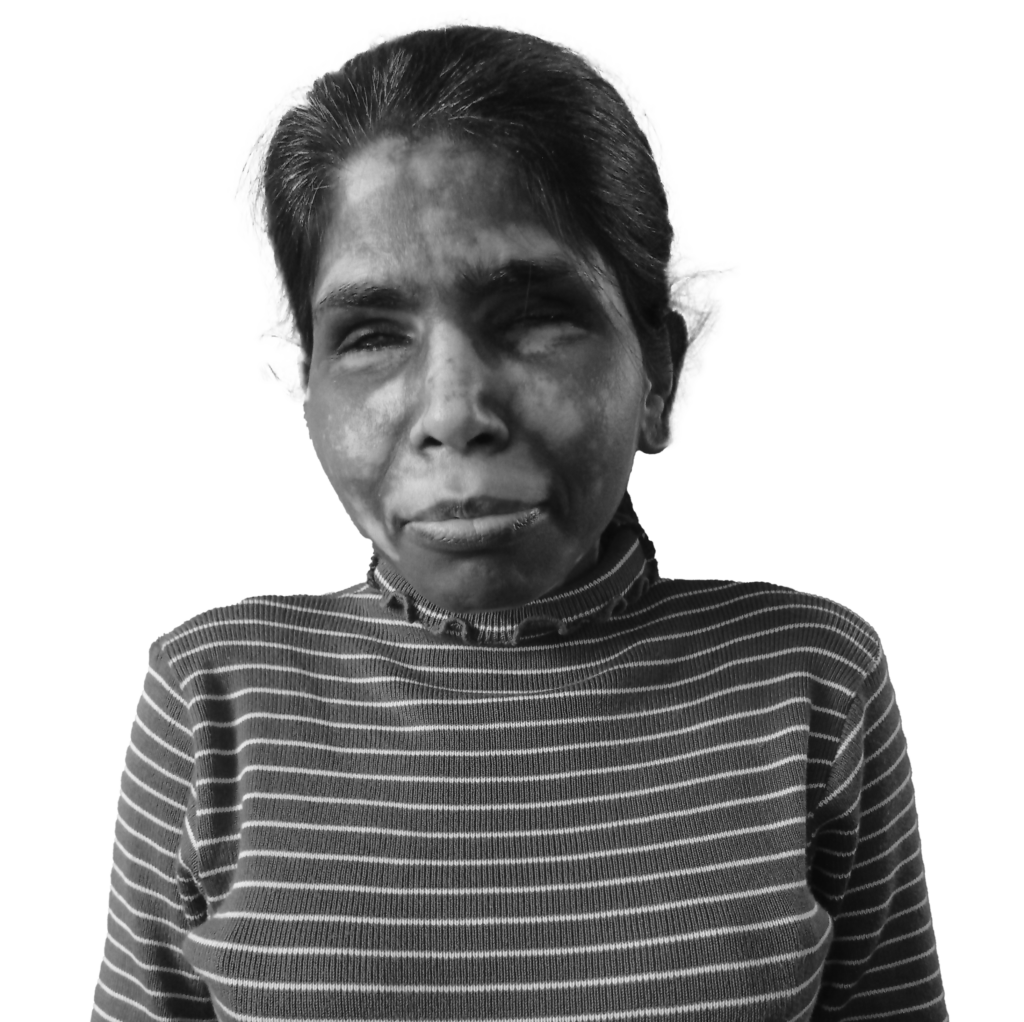
Sita Sah
Sita Sah is a visually impaired woman with complete vision loss. She has over five years of professional experience spanning various sectors and NGOs and has most recently served as a project assistant at the Blind Women Association Nepal (BWAN) since February 2022. After completing her 10th grade in Nepal, she moved to New Delhi, India for her education where she completed a B.A. from the Delhi University and a medical transcription course from Sarthak Educational Trust. Alongside her professional pursuits, Sah is deeply passionate about creative writing, particularly short stories and poems. She finds solace in sad songs and enjoys reading novels in her leisure time.
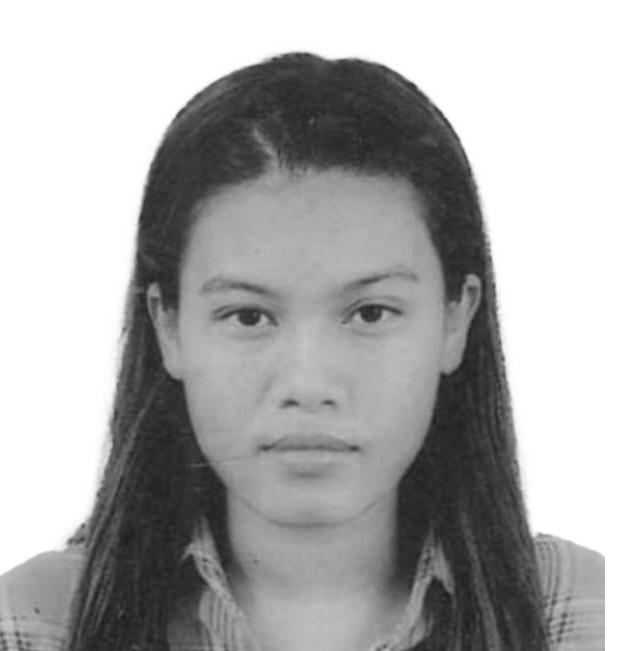
Bhawana Majhi
Bhawana Majhi is an Indigenous woman with a physical disability based in Kathmandu. She is an intern at the National Indigenous Disabled Women Association – Nepal (NIDWAN), actively engaged in contributing to national-level meetings, workshops, and training sessions on behalf of the organization. Her involvement has given her a deep understanding of human rights, issues related to Indigenous persons with disabilities, and relevant national and international provisions, including the Convention on the Elimination of All Forms of Discrimination Against Women (CEDAW), United Nations Declaration on the Rights of Indigenous Peoples (UNDRIP), United Nations Convention on the Rights of Persons with Disabilities (CRPD), and the Nepal Disability Act of 2017.
For NIDWAN, Majhi handles social media, creates detailed reports of completed activities, and eye-catching event flyers. She also works with the advocacy team and develops monthly bulletins to keep stakeholders informed about the organization’s ongoing work. Majhi is passionate about and plays a pivotal role in activism and safeguarding the rights of Indigenous women and girls with disabilities in Nepal.
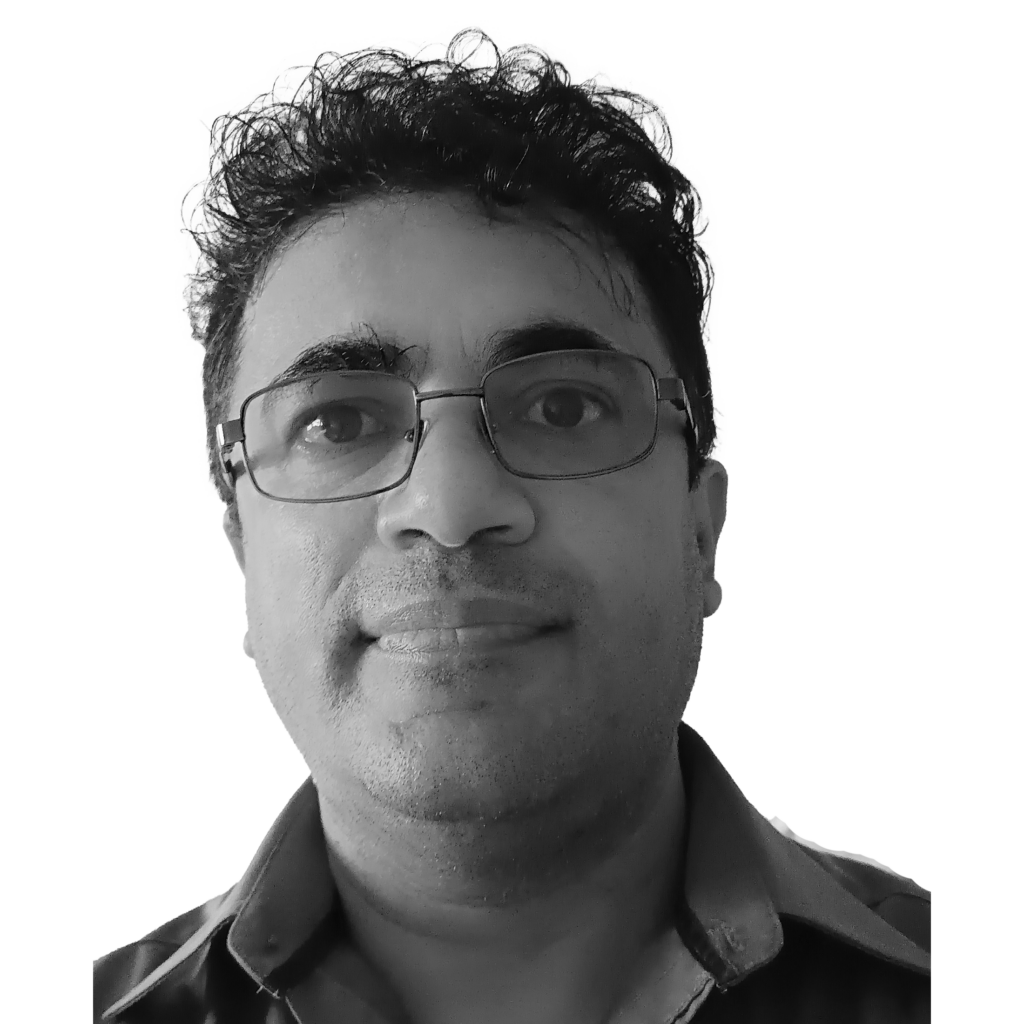
Sanjaya Raj Neupane
Sanjaya Raj Neupane is a passionate disability-rights advocate dedicated to mentoring individuals with psychosocial disabilities. In his role as the advocacy coordinator at KOSHISH, an organization amplifying the voices of persons with psychosocial disabilities, he plays a crucial part in advancing their rights, promoting inclusive livelihoods, and seamlessly integrating mental health into Nepal’s healthcare system.
Neupane is based in Nepalgunj and plays a significant role within KOSHISH representing people with psychosocial disabilities as a federal member of the National Federation of the Disabled – Nepal (NFD-N). Beyond his official duties, he serves as a mentor and coach for those whose voices often remain unheard due to psychosocial disabilities. His contributions encompass creating accessible content, including Information, Education, and Communication (IEC) resources, engaging video scripts, informative training manuals, and inspiring narratives.
Through a powerful blend of empathy and advocacy, Neupane acts as a catalyst, diligently reshaping societal norms related to psychosocial disabilities and nurturing a more inclusive Nepal.
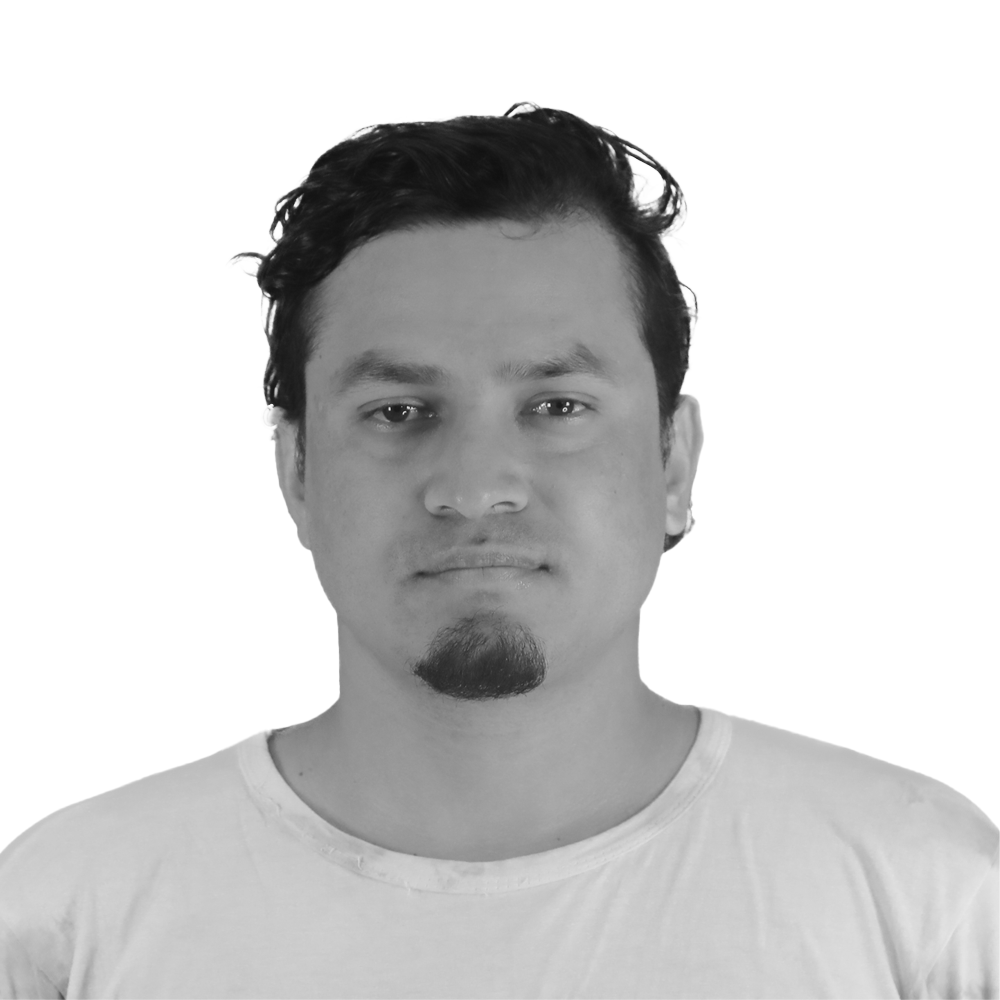
Bishwamitra Bhitrakoti
Bishwamitra Bhitrakoti is a Deaf youth from Annapurna Rural Municipality, Kaski, Nepal. Born into a Dalit community, he has challenged casteism as part of his advocacy work. He holds a diploma in animal science and is currently pursuing a B.A. in sociology and psychology. As a communications officer at the National Federation of the Deaf, Nepal, Bhitrakoti focuses on strategic communication planning, fostering media relations, and creating universally designed content.
An advocate for disability rights, Bhitrakoti engages with youth groups and organizations as the president of the Annapurna Deaf Association and a member of the National Federation of the Disabled Nepal in the Gandaki province. Over the last seven years, Bhitrakoti has trained youth with disabilities in Nepali Sign Language, human rights, sexual and reproductive health rights (SRHR), comprehensive sexuality education (CSE), mental health, and political rights. Bhitrakoti is passionate about traveling and exploring new destinations.
2023 DJP Fellows - Pacific Islands
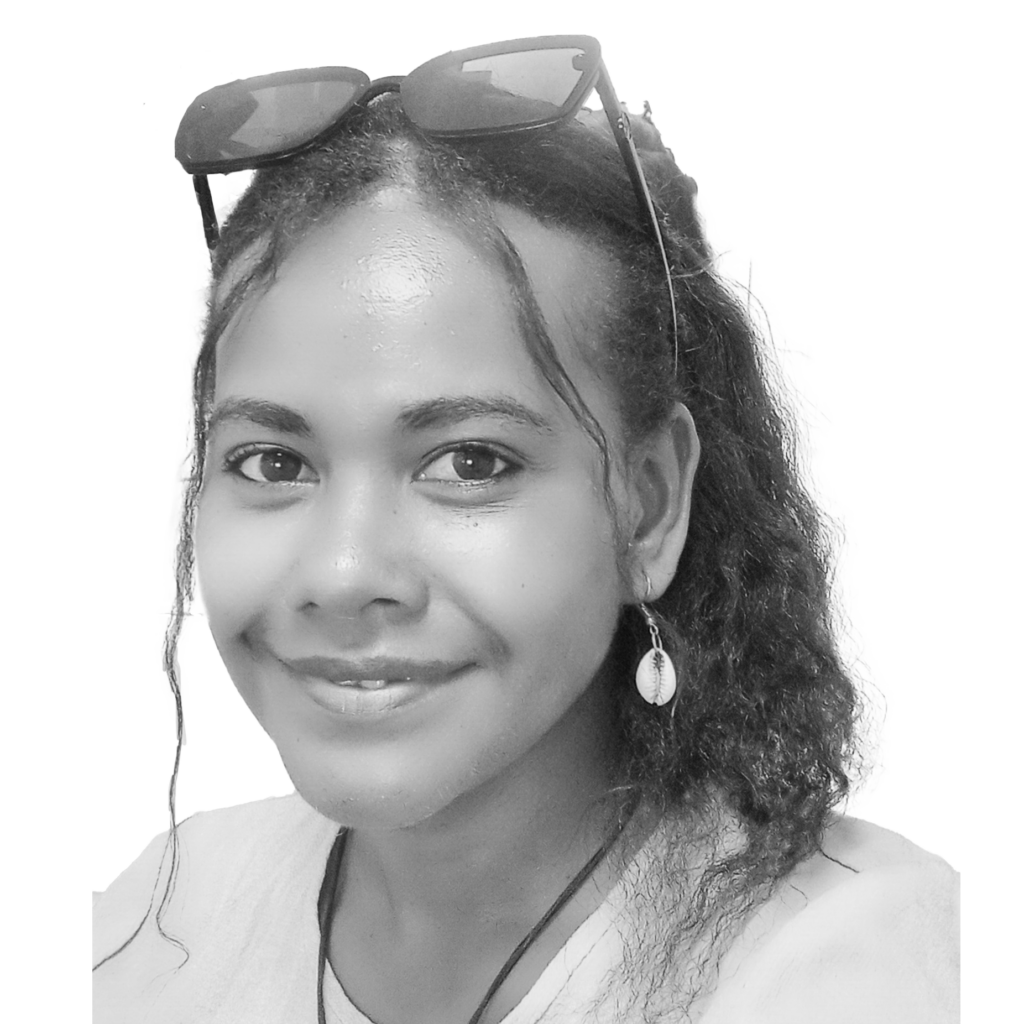
Melvina Voua
Melvina Voua is involved in many volunteer activities with youth groups, women’s groups and people with disabilities in her community. A woman with a physical disability, she is a member of People with Disability Solomon Islands (PWDSI), the umbrella body of organizations for people with disabilities in the Solomon Islands. PWDSI advocates for, promotes and protects the rights of persons with disabilities.
From 2020 to 2022, Voua was employed by PWDSI as a part-time climate change officer to be the point person for the Pacific Disability Forum (PDF) where she carried out research on the impacts of climate change on people with disabilities in the Solomon Islands. By involving herself in the research, she continues to advocate for disability inclusion in humanitarian projects around disaster readiness, climate adaptation and mitigation actions with PWDSI partners and stakeholders.
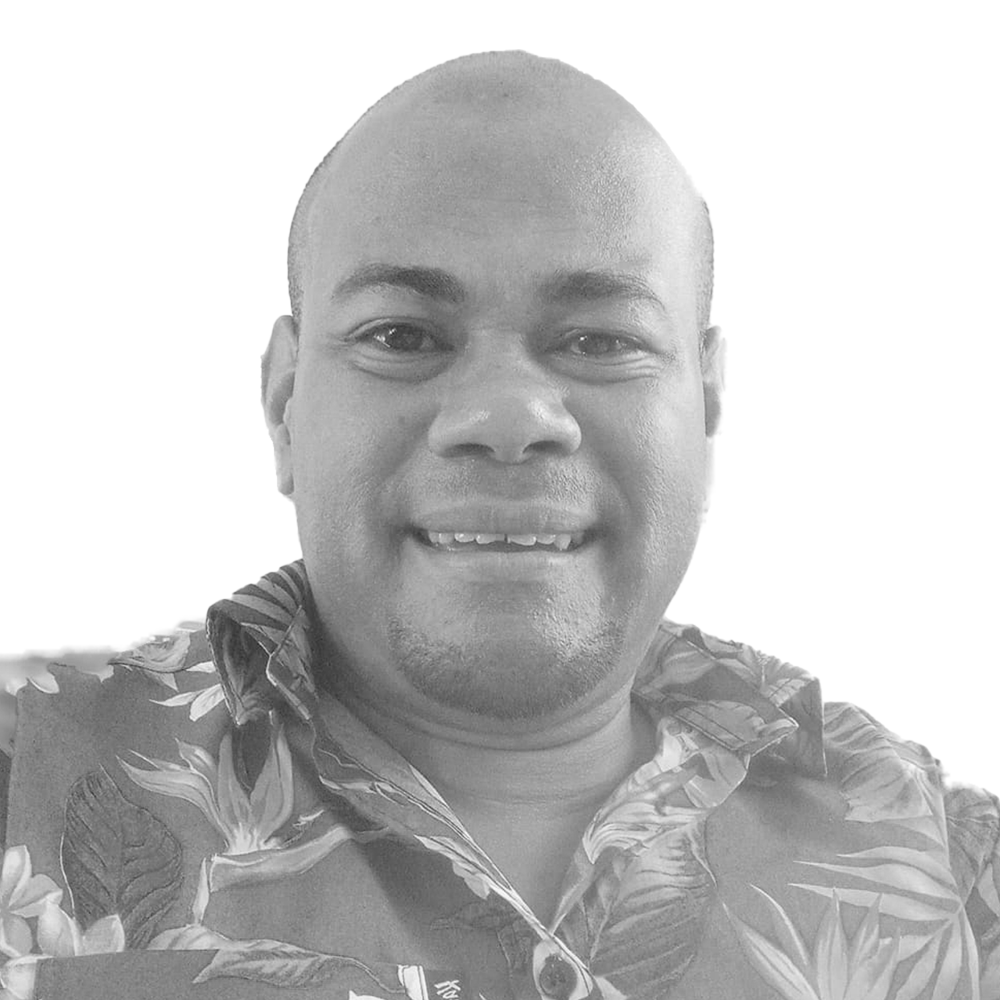
Isoa Nabainivalu
Isoa Nabainivalu, who prefers to be called Isoa or Zoey, is an assistant project officer at the Disability Pride Hub (DPH) in Fiji. Nabainivalu is a 34-year-old hard of hearing single man who uses Fiji Sign Language to communicate.
DPH is affiliated to the mainstream LGBTIQ organization, Rainbow Pride Foundation (RPF), and also has a close working relationship with national OPDs such as the Fiji Association of the Deaf (FAD). DPH is striving to network and build capacity with the regional community especially in the areas of people with diverse sexual orientation, gender identity, gender expression and sex characteristics (SOGIESC) with disabilities.
Nabainivalu has worked as a project officer at the Fiji Association of the Deaf, is an alumnus of the Young Pacific Leaders Fellowship (YPL), was president of the Fiji Disabled Peoples Federation youth committee, and vice chairperson for the Fiji Sign Language Committee. For nine years he has been a sign language teacher and a committee secretary for the Fiji Deaf Rugby which in April of this year, managed to raise the funds and send a team of 14 to the World Deaf Rugby Cup held in Argentina.
Nabainivalu is passionate about his work in the area of advocacy and networking for his small community and spreading information using accessible communication such as uniform sign language, home signs, pictorials, visuals, or easy-to-read language.
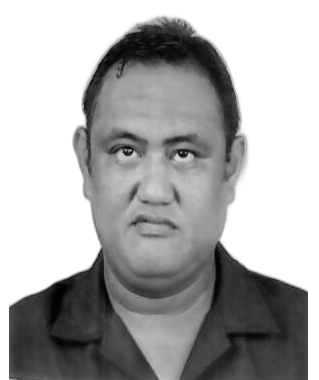
Sa Utailesolo
Sa Utailesolo, a 40-year-old man with vision impairment, grew up in the villages of Lepea and Lalomanu in Samoa. His various qualifications include certifications in early childhood teaching, orientation and mobility facilitation, and accounting and auditing which enables him to draft audit recommendations and verify documentation. Utailesolo has been working at the National Advocacy Organisation of Persons with Disabilities, Nuanua O Le Alofa, as a finance and administration coordinator for nearly 15 years. In the past, he has also worked as a Braille translator. Passionate about disability rights advocacy, Utailesolo has a training of trainers certificate for raising awareness on the United Nations Convention on the Rights of Persons with Disabilities (CRPD). Father to a son, he is committed to his family and the church and supports his wife, who has a disability, on her work-related travels.
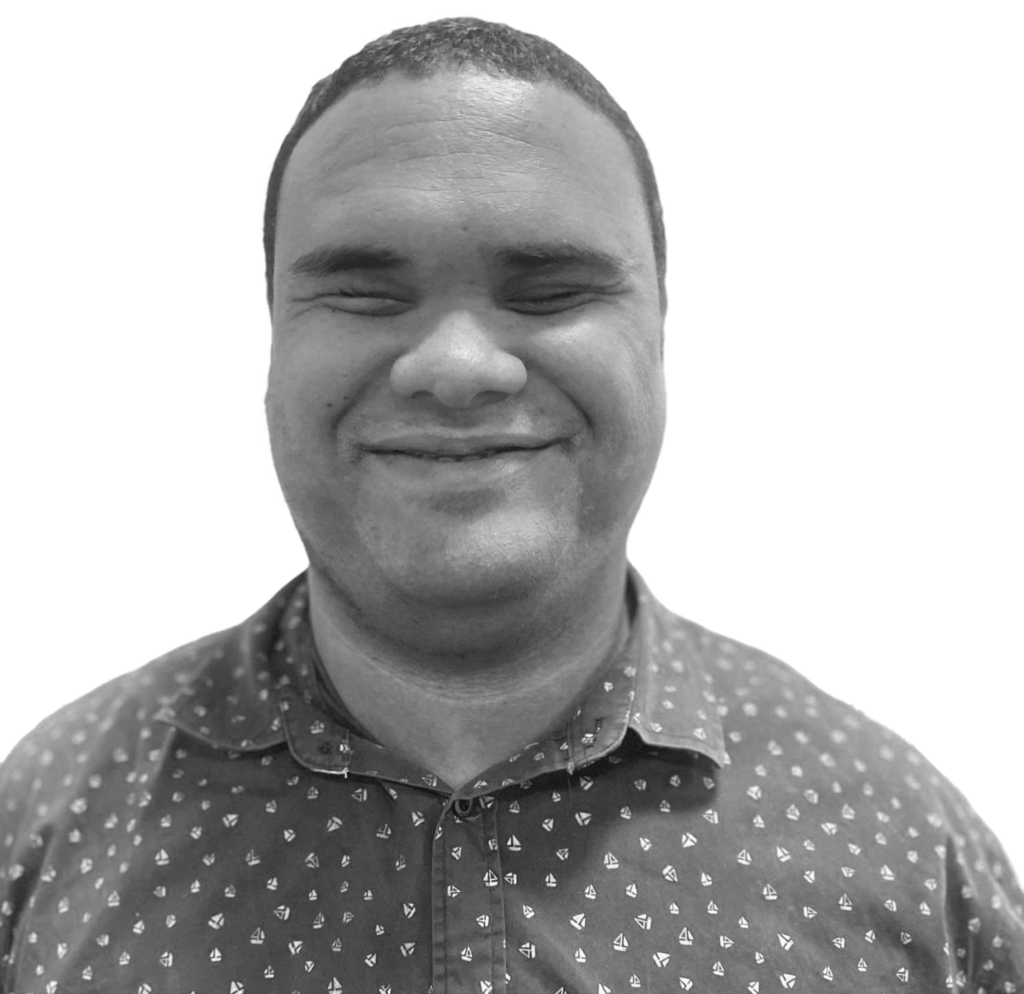
Ari Tommy Hazelman
Ari Tommy Hazelman is a blind 34-year-old Samoan man posted as the disability inclusive officer for the Samoa Blind Persons Association, (SBPA), the only association in Samoa that deals with issues affecting blind and visually impaired people. Hazelman works with the SBPA’s Braille unit and is involved in the organization’s advocacy work through various activities under a project funded by the Disability Rights Fund.
Passionate about disability rights and accessible information, Hazelman is a member of Samoa’s CRPD resource team, Samoa’s disability reference team on disaster risk reduction, and Nuanua O Le Alofa, a nationally recognized disability rights advocacy organization.
Hazelman loves to meet and network with new people and speaks six languages including Samoan, English, Fijian, Hindi, Japanese and German. He has represented Samoa at international events like the Harkin Summit on employment of persons with disabilities and attended the Duskin Leadership Training Programme in Japan for people with disabilities for the Asia Pacific region in 2019-20.
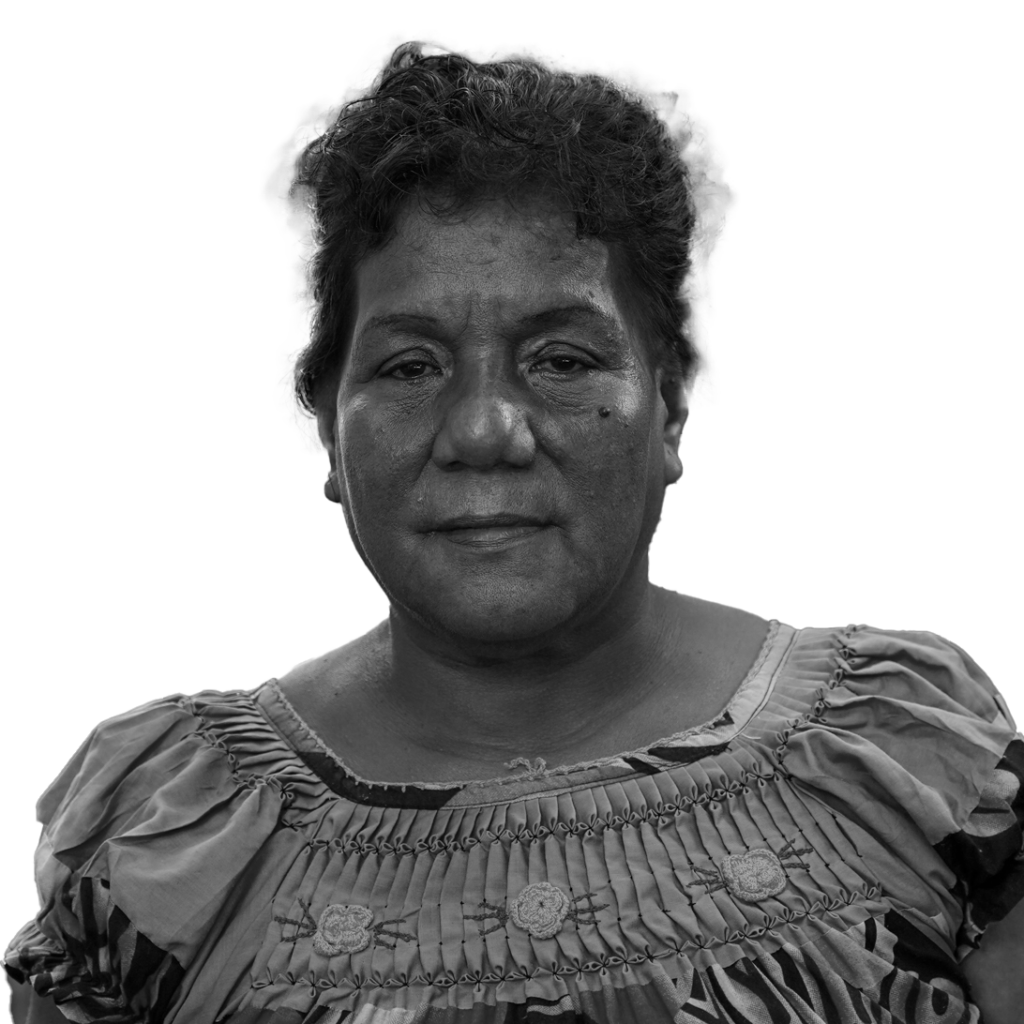
Terubeimoa (Ruby) Nabetari
Ruby Nabetari is a member of Te Toa Matoa, the umbrella organization for people with disabilities in Kiribati. She is a theater director and a composer who works with women and youth with disabilities and NGOs to help deliver their messages to communities through drama and song. Nabetari also teaches music and theater to youth groups from various churches. She is an officer for a program through Te Toa Matoa that works to build the capacity of persons with disabilities in Kiribati. Her dream is for her country’s government to include and prioritize people with disabilities when creating new policies and laws on issues like responses to climate change and plans for new infrastructure.
2022 DJP Fellows - Indonesia

Sri Sukarni
Sri Sukarni is chairperson of the Association of Indonesian Women with Disabilities (HWDI)’s branch in the province of West Nusa Tenggara. She joined HWDI as a member in 2010 and has been involved ever since. HWDI’s mission includes advocating for the social development of women with disabilities and improving their quality of life. The organization champions equal opportunity and full participation for women with disabilities. As chairperson, Sukarni is responsible for the management and leadership of the organization’s programs. Additionally, she works with team members, board members, and external stakeholders to create and deliver organization reports.
Sukarni’s disability advocacy goes beyond HWDI. In 2015, she researched the oversight of government assistance programs for persons with significant disabilities with the Australia Indonesia Partnership for Justice (AIPJ) and the Universitas Gadjah Mada’s Anti-Corruption Study Center (PUKAT). In 2016, she was chair of the Wheelchair Basketball Program at the Bali Sports Foundation. Sukarni also presented on disability issues related to infrastructure at the International Conference on Disability & Diversity in Asia at Universitas Brawijaya in 2019.

Kinanty Andini
Kinanty “Kinan” Andini is a freelance graphic design and digital artist and a psychosocial disability activist. She is affiliated with the Indonesian Mental Health Association (IMHA), also known as Perhimpunan Jiwa Sehat. She collaborated with other IMHA members to create a short film series, “AADM (What’s Wrong with Mental Disability)” about the underreported experiences of persons living with psychosocial disabilities. IMHA advocates for the rights of Indonesians with psychosocial disabilities based on the United Nations Convention on the Rights of Persons with Disabilities. IMHA’s activities include advocacy, campaigns, lobbying, legal efforts, media, public awareness, trainings, workshops, research, seminars, discussions, and more.
Andini is passionate about visual arts, particularly graphic design and digital art/illustration. In 2019, she produced banners and posters for a competition held by the Indonesian Ministry of Foreign Affairs. Last year, she worked as a video content creator intern at a company in Jakarta. She plans to channel her digital design and artistic skills into animation, digital comics, games, and advertising. Follow her on Instagram to check out her digital art.

Mahretta Maha
Mahretta “Retta” Maha is a blind disability rights activist hailing from Jakarta, Indonesia. She is one of four children. Of all the children, Maha’s parents prioritized sending Retta to college and eventually law school. She earned a law degree from Atma Jaya Catholic University of Indonesia. In June 2020, Maha became a program officer at the Center for Election Access of Citizens with Disabilities (PPUA), which is part of the National Coalition of Organizations of Persons with Disabilities. PPUA works to ensure equal rights for persons with disabilities to vote, be elected, and organize elections.
As a program officer at PPUA, Maha coordinates with coalition leaders, writes letters to institutions and stakeholders, organizes webinars, and helps manage social media accounts. Overall, Maha finds purpose in serving others. Maha says, “Blindness is not a barrier for you to do some things but is a challenge for you to do many things.”

Dija
Dija, who has a single given name and no surname, is chairperson of the Association of Indonesian Women with Disabilities (HWDI)’s branch in Simbang in the Indonesian province of South Sulawesi. She is also a board member of the Section Indigenous Community, a sub-section of HWDI’s branch in South Sulawesi. Dija first became involved with HWDI over three years ago. Its mission includes advocating for the social development of women with disabilities and improving their quality of life. The organization champions equal opportunity and full participation for women with disabilities.
Dija also has been active in a participatory planning and budgeting system in Indonesia known as “Musrenbang.” During in-person and online forums, local governments engage citizens in discussions on community aspirations and priorities. Last year with HWDI South Sulawesi, Dija advocated for a Musrenbang focused on disability. She worked with two offshoot groups of HWDI to accomplish this – Self-Help Group Batubassi Pammase and Self-Help Group Panrita. Both groups work to support Indigenous persons with disabilities in their respective communities. As a result of their advocacy efforts, the local government integrated disability into a pre-existing “Thematic Musrenbang for Women and Children” to form the “Thematic Musrenbang for Women, Children, and Disability.” Dija is a member of the Simbang District delegation at another local “Musrenbang,” representing Indigenous women with disabilities.
At HWDI South Sulawesi, Dija also collects data on Indigenous persons with disabilities in Batubassi, a village in South Sulawesi, with Self-Help Group Batubassi Pammase. She assists with cases of sexual violence against women with disabilities in South Sulawesi’s Maros Regency with a Self-Help Group Batubassi Pammase companion. Dija is a children’s rights advocate, too. She joined a network of women’s and children’s organizations in the Stop Child Marriage Campaign Coalition in Maros Regency.

Naufal Asy-Syaddad
Naufal Asy-Syaddad is a disability rights activist with autism. After joining Yogasmara Foundation’s finance staff last year, Asy-Syaddad became chairperson of the foundation’s youth group. Yogasmara Foundation provides accommodation, accessibility, and advocacy services for Indonesians with autism and developmental disabilities to gain equality in fulfilling their rights as citizens. The foundation was started by his mother, disability rights activist Lani Setyadi. It is based in Semarang, the capital of Central Java.
In 2015, Asy-Syaddad was selected to be a “disability ambassador” representing Indonesia at a training in Thailand on the rights of persons with disabilities. Beyond his work with the Yogasmara Foundation, Asy-Syaddad is a talented mathematician, achieving top honors in national competitions and garnering local press attention. He recently earned a mathematics degree from Diponegoro University. With the Disability Justice Project, he hopes to share his experiences to end the stigma and discrimination against persons with autism.
2022 DJP Fellows - African Countries

Duster Lucius
Duster Lucius is a 19-year-old disability youth activist who is DeafBlind (partial hearing, completely blind). Malawian by nationality and Yao by tribe, he is a national youth coordinator at the Visual Hearing Impairment Membership Association (VIHEMA), an organization advocating for the rights and needs of persons who are DeafBlind in Malawi. At VIHEMA, Lucius advocates for the inclusion of youth who are DeafBlind in all the Malawian government’s strategic development activities. Aside from his advocacy work, he currently studies at St. Patrick’s National Secondary School in Mzedi.

Benedicta Oyedayo Oyewole
Benedicta Oyedayo Oyewole is an intersectional feminist passionate about disability and women’s rights. Working and living at the nexus of multiple identities, she is interested in the interconnectedness of sexuality, disability, climate, and gender justice. She currently works as a program officer of diversity and inclusion at the Women’s Health and Equal Rights (WHER) Initiative, a nonprofit focused on promoting the rights and well-being of lesbian, bisexual, and queer (LBQ) women in Nigeria. Her dream is to travel the world, document, and explore how the multiplicities of our identities – sexuality, gender, ability, presentation, and upbringing – shape how we engage with and think about ‘desire.’

Oluwaseun Ayodeji
Oluwaseun Ayodeji inspires action for child amputees and young persons with disabilities through her role as the Team Lead, Human Resources and Operations at the IREDE Foundation in Nigeria. She is a dynamic, resourceful, and innovative professional with over five years of progressive management experience in the development and aviation industries. With experience in the development space, Oluwaseun, a person with a physical disability (amputee) herself, has contributed to and delivered impact by advocating with and for children with disabilities, vulnerable children, and victims of sexual and gender-based violence. She enjoys arts in their diverse expressions and is quite keen on issues touching gender equality, human rights, and environmental awareness. She holds a bachelor’s degree in international relations and certifications in human resource fundamentals and people management from the Chartered Institute of Personnel and Development (CIPD), among other certifications.

Christine Oliver Dhikusooka
Christine Oliver Dhikusooka is a 48-year-old Catholic Ugandan, married with four children. She is a woman with a physical disability resulting from polio at age four. She holds an accounting diploma from Makerere Perfect Accountancy Centre in Kampala. Dhikusooka is the executive director of One Voice Heard 4 Disability Uganda (OVH4DU), a disability rights activist for women with disabilities in Uganda, and a policymaker in local government, representing women with disabilities. She serves as treasurer of the Council for Persons with Disabilities in the Roman Catholic Diocese of Jinja.

Esther Mukampogazi
Esther Mukampogazi, a woman with dwarfism, is a project manager and advocacy coordinator at the Organization of Women with Disabilities for Health Promotion and Development in Rwanda (OWDHD). She holds a bachelor’s degree in communication and journalism from the University of Rwanda. Mukampogazi has been working in the disability community, participating in training, meetings, and events focused on social inclusion and making a more disability-friendly world. As a youth advocate, she has worked to make positive changes in government, schools, communities, and families. Her dream is to continue being a strong disability and gender activist.
2021 DJP Fellows
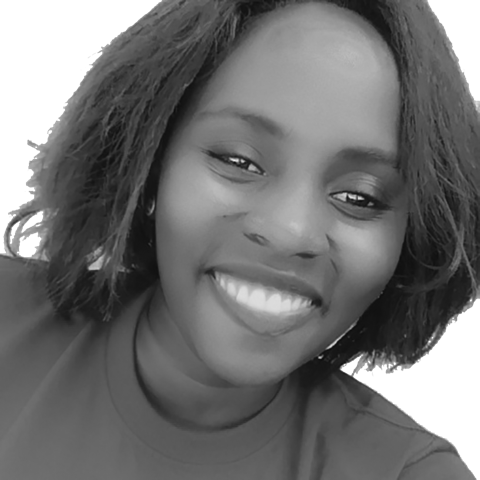
Esther Suubi
Esther Suubi from Uganda is a recent graduate from Uganda Christian University with a bachelor’s degree in mass communication. She is a person with a psychosocial disability and an advocate for young girls’ and women’s voices. Suubi is also a peer educator at Triumph Mental Health Support and does work with the organization’s communications team.
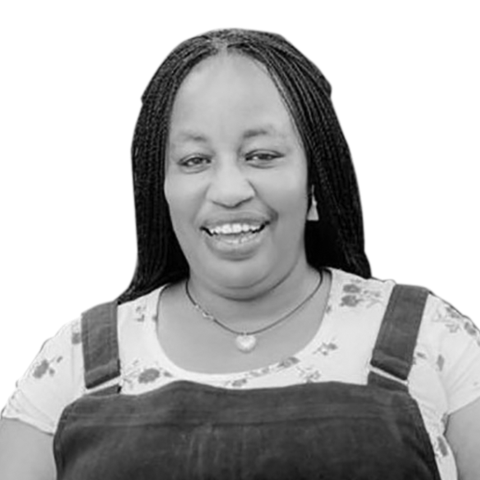
Rose Umutesi
Rose Umutesi is chairperson of the National Organization of Users and Survivors of Psychiatry in Rwanda (NOUSPR) and co-founder and treasurer of its umbrella organization, the National Union of Disabilities Organizations of Rwanda (NUDOR).
NOUSPR’S mission is to advocate for and with people with psychosocial disabilities. It works to provide a platform for a unified voice to advocate for services and opportunities and to have NOUSPR members’ interests and human rights promoted and protected.
NUDOR was established in 2010 by eight national organizations of persons with disabilities. Its mission is to strengthen the voice of the disability movement in Rwanda.
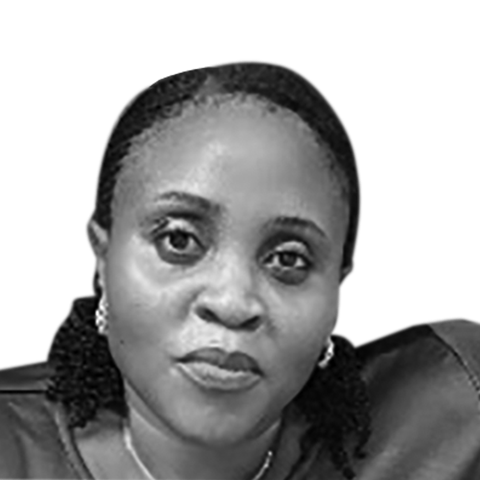
Oluwabukolami Omolara Badmus
Oluwabukolami Omolara Badmus is a 33-year-old disability rights activist and feminist based in Lagos, Nigeria. She is both the financial secretary and Lagos state coordinator for the Lionheart Ability Leaders International Foundation (LALIF). Badmus is also an educator, teaching at a government/public high school.
Since 2019, part of LALIF’s major organizational focus has been on people with Usher syndrome, a genetic condition that can lead to DeafBlindness. After realizing how little Nigerian citizens know about Usher syndrome and those who live with it, Badmus is now actively involved in educating people, from government officials to educators, about this condition.
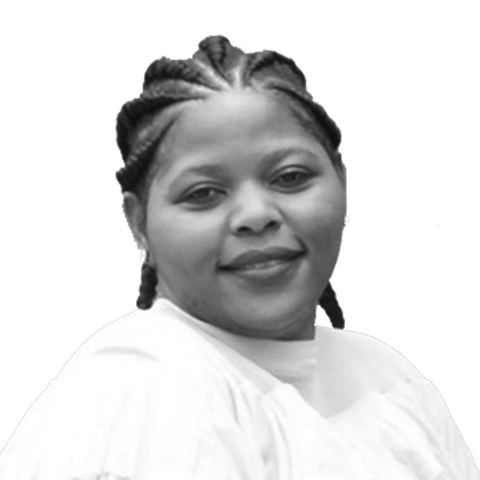
Julie-Marie Chibekete
Julie-Marie Chibekete is an active member of the Spinal injuries Association of Malawi (SIAM). She has over ten years’ experience in community development and humanitarian work. Inspired by the struggles people in various communities go through to access basic needs, she has a passion for helping communities identify underlying causes of vulnerability and to realize equity in access. Chibekete says her spinal injury motivated her to make sure that members of the disability community are aware of and actively take part in utilizing their potential in local development initiatives.
SIAM is an association mandated to advocate for the needs and interests of disabled people living with spinal injuries so they can actively participate in society. Chibekete ensures the organization’s goals are attained through peer support and other initiatives. #NoInclusionWithSelf-Exclusion.
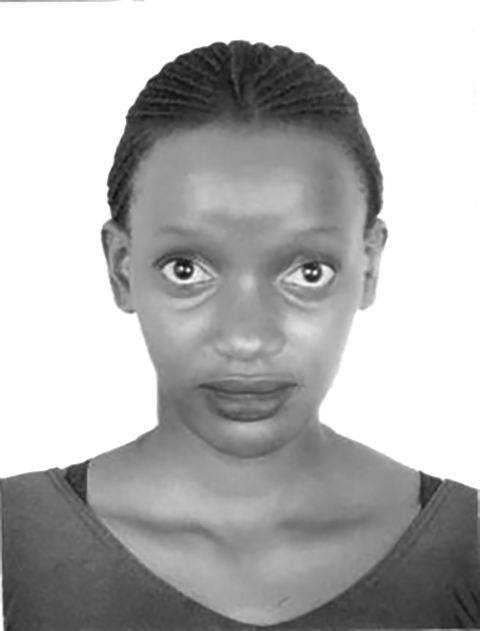
Nissy Namuyomba
Nissy Namuyomba is an administrative assistant working alongside the executive team at the Masaka Association of Persons with Disabilities Living with HIV/AIDS and a volunteer with the Masaka Association of Persons with Cerebral Palsy in Uganda. Namuyomba supports teams by performing tasks related to organization with strong communication as well as strengthening relationships with the local government to understand disability issues in Masaka City. Namuyomba is experienced in networking with local leaders and is skilled in financial accountability, backed by a degree in business administration and management. Namuyomba is a powerful force in the workplace. She is inspired daily by her desire to create a society that is inclusive of people with disabilities through storytelling and writing.
Additional Filmmakers
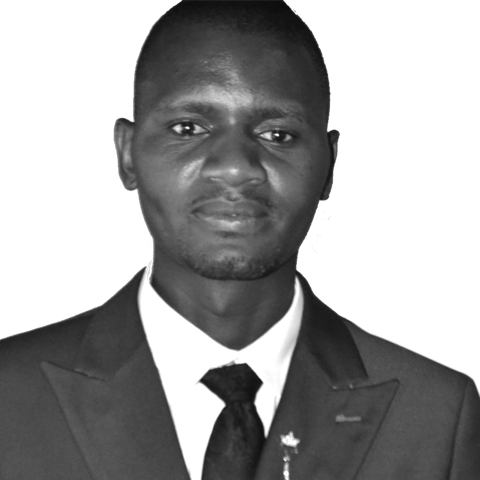
Thacien Biziyaremye
Thacien Biziyaremye is a journalist, director, editor, and camera operator and the co-founder of SACAMS (Special Advocacy, Communication and Media Services) Ltd. He is based in Kigali, Rwanda.
Biziyaremye became engaged in journalism, storytelling, and video production after realizing that marginalized people, including persons with disabilities, were not accessing human rights like others in his village. He discovered a love for media so that he could advocate through his communications and storytelling skills. He joined the University of Rwanda and graduated in 2015 in Journalism and Communications. When not busy with work, Biziyaremye can be found taking photographs and shooting video.
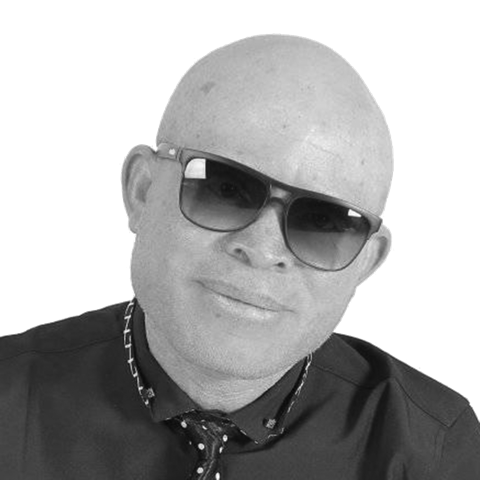
John Chiti
R&B singer John Chiti is the executive director of the Albinism Foundation of Zambia (AFZ). The musician, who counts a former first lady and president of Zambia among his fans, has produced two songs about the coronavirus to raise awareness of its impact on persons with disabilities.
Chiti is one of Zambia’s most prominent people with albinism. He has used his music to educate people about this genetic disorder in which there is little to no production of a pigment called melanin. This pigment determines the color of someone’s skin, hair, and eyes. Chiti is open about the discrimination he’s faced as a person with albinism. Today, he is a household name in Zambia. He is married with two children.
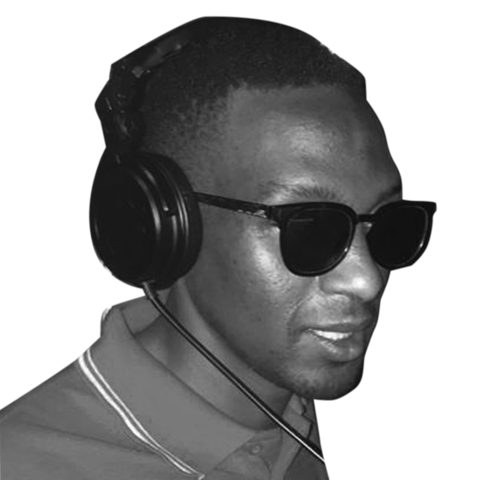
SingStar Ali
SingStar Ali is based in Rwanda. Find him on Twitter.
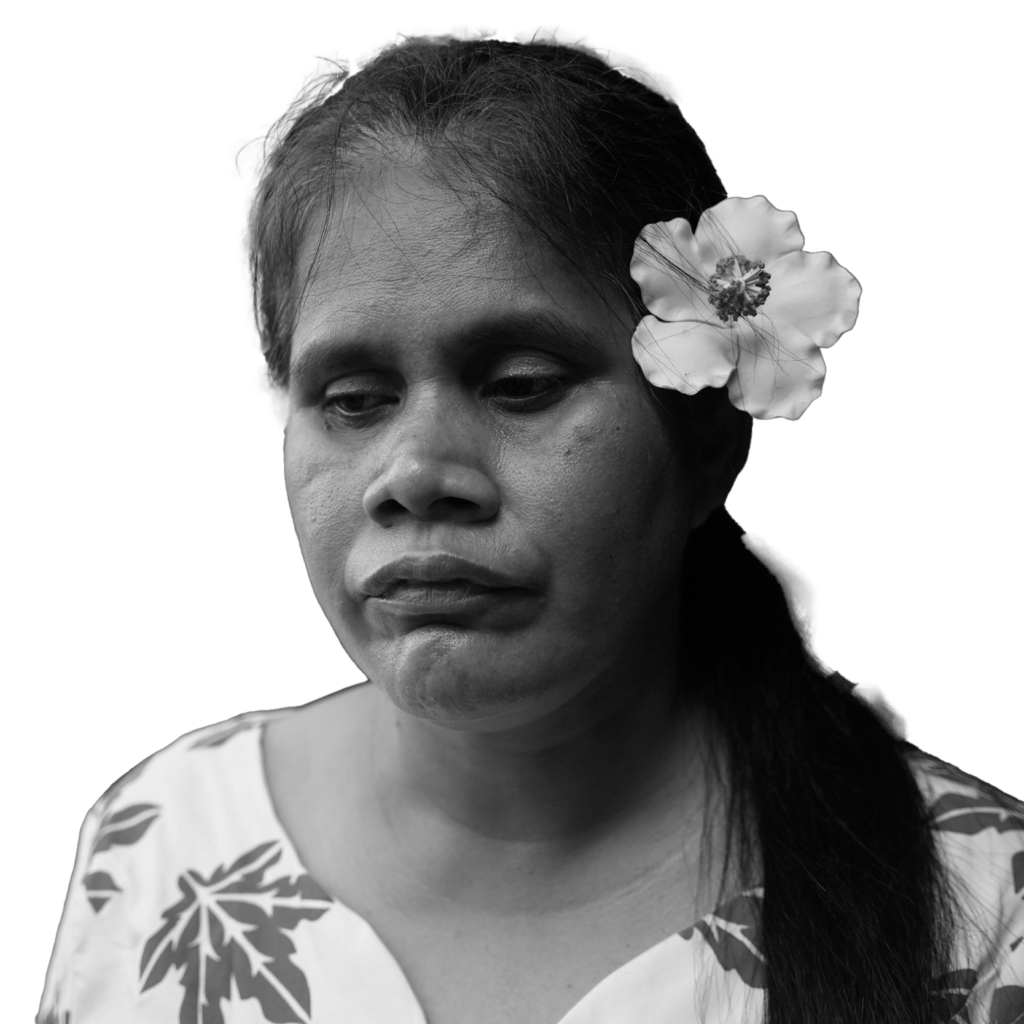
Faaolo Utumapu-Utailesolo
Faaolo Utumapu-Utailesolo is the program officer for the Pacific Island Countries for the Disability Rights Fund and the Disability Rights Advocacy Fund. She works closely with the program team and serves as a liaison between the funds and grantees in the Pacific Island Countries.